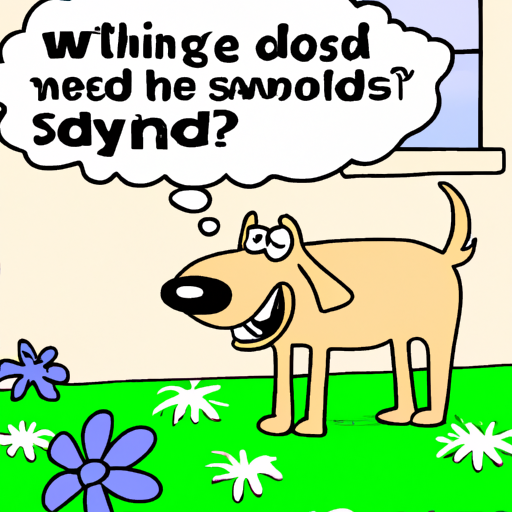Understanding Your Dog’s Nature
Dogs have a keen sense of smell – much stronger than ours, and they use this to explore their surroundings. When they’re outside, they’re exposed to a plethora of scents, from other animals to plants and everything in between. These smells can cling to their fur, and when they return indoors, you get a whiff of all the scents they’ve encountered.
The Role of Weather
The weather plays a significant role in enhancing or reducing these smells. On a dry, sunny day, your dog’s coat will likely not pick up as many scents. However, on a damp day or after a rainfall, you may notice that your dog smells stronger. This is because moisture helps to intensify smells, making them more noticeable.
| Weather | Smell Intensity |
|---|---|
| Dry, sunny day | Low |
| Damp, rainy day | High |
Dogs’ Glands and Their Impact on Smell
Dogs have several types of glands that can contribute to their smell. One of these is the sebaceous glands, which produce an oily substance that coats the fur. This substance can pick up and hold onto smells. Moreover, dogs also have anal glands, which can release a strong scent when the dog is scared or excited.
The Role of Diet in Your Dog’s Smell
What you feed your dog can also impact how they smell. Certain types of dog food can cause your pet to produce more oil in their skin, which can lead to a stronger scent. If you notice a change in your dog’s smell, consider looking at their diet.
- High-fat diet: This can increase oil production, leading to a stronger smell.
- High-fiber diet: This can help to reduce the smell, as fiber helps to regulate the digestive system.
The Importance of Regular Grooming
Regular grooming is essential for controlling your dog’s smell. This includes bathing, brushing, and cleaning their ears and teeth. By doing these regularly, you can help to reduce the smells your dog brings in from outside.
- Bathing: This helps to remove dirt and odor-causing bacteria from your dog’s coat.
- Brushing: This helps to remove dead skin cells and excess oils that can contribute to bad smells.
- Ear cleaning: This helps to prevent infections that can cause a foul smell.
- Teeth cleaning: This helps to control bad breath.
FAQs
Q: Is it normal for dogs to smell after going outside?
A: Yes, it’s perfectly normal. Dogs explore the world through their sense of smell, and this can lead to them picking up various scents from outside.
Q: Can diet affect how my dog smells?
A: Absolutely. A diet high in fats can cause your dog’s skin to produce more oil, which can lead to a stronger smell.
Q: How can I reduce my dog’s smell?
A: Regular grooming, including bathing and brushing, can help to control your dog’s smell. Also, consider adjusting their diet if necessary.
Q: Is the weather a factor in how much my dog smells?
A: Yes, moisture can intensify smells, so your dog may smell stronger after being out in damp or rainy weather.



